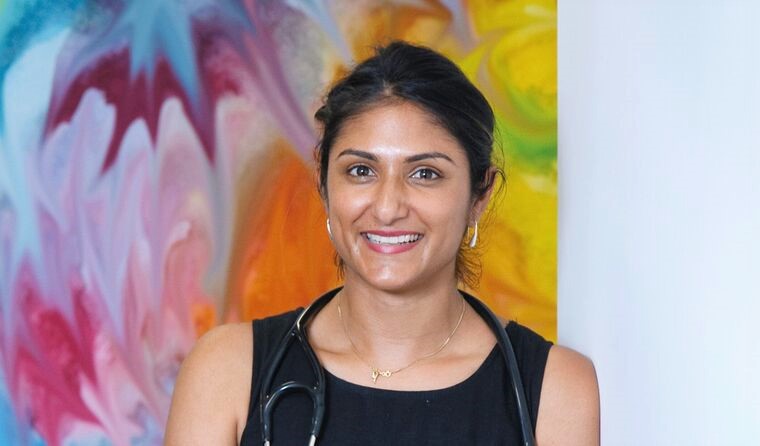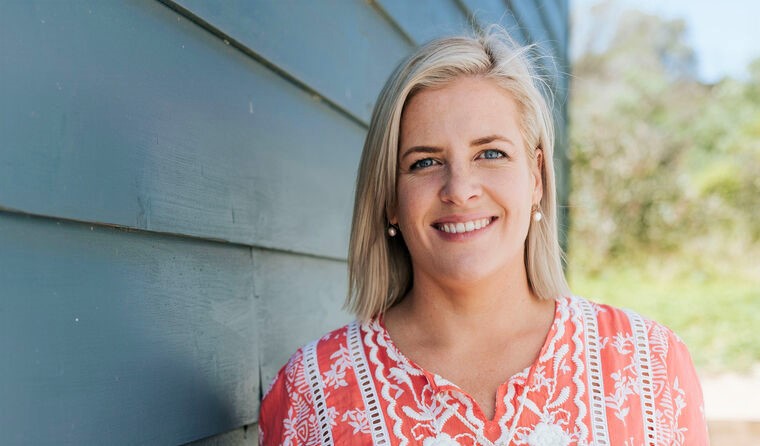Feature
‘Putting your job above all else is the norm’
The culture that doctors do not call in sick or take time off for personal reasons is well known, but experts still hope it will change.
 Dr Preeya Alexander (left) and Dr Emily Amos have both experienced the overarching medical culture of needing to put work before all else.
Dr Preeya Alexander (left) and Dr Emily Amos have both experienced the overarching medical culture of needing to put work before all else.
On 15 April, a doctor in the US who goes by the Twitter handle Medical Axioms tweeted a thread about the culture of doctors not taking time off work.
‘I will tell you an embarrassing story,’ he wrote.
‘Twenty years ago, my then wife’s dad committed suicide on a Tuesday.
‘She called me at work in the middle of the afternoon. It was a ridiculous day in clinic. Three exam rooms full and a waiting room filling up.’
He responded to his then-wife by asking if she had someone there with her.
‘Then I made my mistake,’ he wrote.
‘I said, “I have all these patients to see. I’ll be home as soon as I can”.’
The doctor went on to explain that, in his defence, he had ‘never once’ in his medical training or career seen someone put a personal event ahead of their professional duties.
‘Quite the contrary,’ he wrote.
‘I had watched a vascular surgery fellow get told his wife was divorcing him, hang up the phone, and continue rounds without a shred of emotion.
‘This was the culture of medicine I was raised in.’
The author of the Twitter thread says his wife ‘survived’ until he arrived home a few hours later.
‘The point is, I did not know how to leave my professional life in the event of an emergency,’ he wrote.
He says the ‘most important part’ of telling this story is that even though people in your life tolerate being secondary to your career, that does not mean they should not be first priority at times.
He also notes he delivered ‘sub-standard care’ to the patients he saw that afternoon, and wants other clinicians to be able to recognise when they are ‘sufficiently impaired’ by their emotions not to be able to practice medicine.
‘We can’t expect people in the midst of a personal tragedy to continue to practice medicine like a computer healthcare kiosk,’ he said.
Instead of perpetuating a culture that encourages doctors to work regardless of their personal circumstances or adverse health, he would like it to shift towards one where covering colleagues who need to leave due to personal circumstances is the norm.
The Twitter thread led to an outpouring of similar stories by other doctors.
One doctor tweeted about working overnight in the paediatric intensive care unit while ‘actively’ having a miscarriage.
‘In what deluded world did I think this was okay?’ she wrote.
Others chimed in with stories about being considered ‘slack’ or ‘not cut out’ for medicine due to calling in sick.
Another doctor tweeted about feeling judged for taking a few hours off work as an intern due to an ‘absolutely, completely debilitating’ stomach illness.
The worst part, he says, is that after this encounter he was ‘too scared’ to ask for time off a few months later for his grandfather’s funeral.
‘Letting [my senior] bully me into [that] is [my] biggest regret of medicine to date,’ he wrote.
While it seems the majority of these stories are pouring in from US doctors, the situation in Australian hospitals is not dissimilar.

Dr Preeya Alexander says doctors in the hospital system are judged harshly if they call in sick.
GP Dr Preeya Alexander recalls being ‘sick as a dog’ during her hospital training and taking a couple of days off. When she got back to work, she was asked how sick she had really been.
‘The question was, “You really couldn’t have worked?”,’ she told newsGP.
‘I remember taking two days off as a resident and being asked that.
‘It was just awful. There’s an expectation that [unless you’re morbidly unwell] or … unless something really drastic is happening in your life that you wouldn’t take a day off.’
Dr Alexander says part of this pressure in the hospital setting lies in not wanting to let your team down. But there is also pressure from more senior staff on the need to be present every day, regardless of what is happening in your personal life.
‘In the hospital system, putting your job above all else is the norm,’ she said. ‘You’re made to feel that you’re not dedicated to the job or strong enough if you take a day off.’
Thankfully, Dr Alexander does not believe this culture is so pervasive in general practice.
She says there is still pressure on GPs not to call in sick for work, but that this is more driven by a personal desire not to let patients down, rather than an external pressure as in the hospital system.
‘There is a different pressure on you as a GP when it comes to sick days,’ she said.
‘When you’re a GP you’ve got your own books, your own patients. You don’t want to let your patients down [because] they’re booked in to see you and you don’t want to put more work on your colleagues, who they’re going to reschedule with.’
GP and mindfulness teacher Dr Emily Amos agrees there is enormous pressure on doctors in the hospital system to not call in sick or take time off for personal reasons. But she told newsGP those pressures can continue into general practice, which is what she experienced firsthand two years ago.
At the time, Dr Amos had been relentlessly petitioning for her grandfather to be cared for in a palliative care unit, in what turned out to be an ‘awful, emotional journey’.
Days after he was finally admitted to palliative care, Dr Amos received a missed call from her mother, telling her that her grandfather had passed away.
‘I was just so overwhelmed and work was just so all-consuming … that I listened to the message and I said, “Okay,” and I went back to consulting because I had a waiting room full of people,’ she said.
Dr Amos remembers thinking to herself that she could not leave work that day.
‘I think the words I would have used were, “I could not walk away, I could not leave,” like there wasn’t an option,’ she said.

When her grandfather died in 2019, Dr Emily Amos was in the middle of a busy clinic and felt she couldn’t ask for personal leave.
Upon reflection, Dr Amos understands that she could have left but – in the stress of the day, and after years of being told doctors should place caring for patients above one’s own needs – it did not feel possible.
Both experts believe the culture of not calling in sick has shifted somewhat due to COVID-19. In the current climate, Dr Alexander believes doctors might feel very comfortable following advice to stay away from work while symptomatic.
However, she says doctors still struggle to call in sick for non-respiratory issues or personal matters.
‘As healthcare professionals, the way we are programmed makes us all struggle to practice really good self-care and take a day off because we think, “Oh, our patients need us”,’ she said.
‘And what you learn over time is that the world will still revolve. Your patients will be okay [if you call in sick].’
Dr Amos says doctors know they need to take care of themselves, but have often ‘lost perspective’ on what that means and when it is acceptable to either call in sick to work or ask for leave.
‘We get taught a lot in medical school, but self-awareness is not high on the teaching agenda,’ she said.
‘Being self-aware takes a huge chunk of mental energy and time and emotional energy and most of us are not really supported to become self-aware, we’re just left to our own devices.’
Dr Amos says her inability to ask for time off work was part of the reason she went on to experience burnout soon after her grandfather’s death. She hopes the culture of presenteeism in medicine will change, so that doctors feel more comfortable advocating for their own needs.
‘We just lose sight of everything else and we put helping people before all else, which is noble,’ she said.
‘But it’s not clever in the long-run, and it’s certainly not sustainable.’
Log in below to join the conversation.
burnout self-care sick leave
newsGP weekly poll
Would it affect your prescribing if proven obesity management medications were added to the PBS?